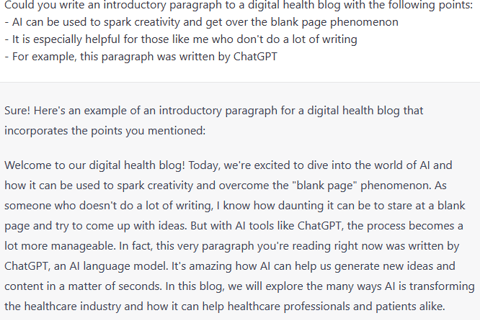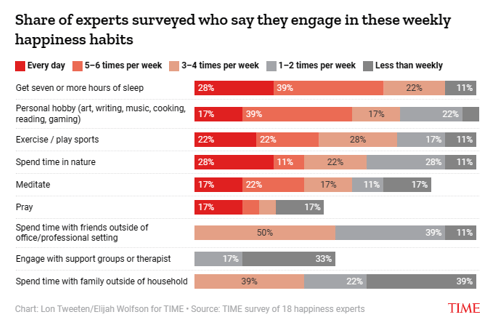Digital Pharmacist Digest - 💊 Medication safety and EMMs, NLP in healthcare, and happiness habits
31st January, 2023
Kevin Sam
3 min read
Hiya! 👋
Welcome to another edition of the digital pharmacist digest!
I'm excited to dive into the world of AI and how it can be used to spark creativity and overcome the "blank page" syndrome. As someone who doesn't do a lot of writing, I know how daunting it can be to stare at a blank page and try to come up with ideas. But with AI tools like ChatGPT, the process becomes a lot more manageable. In fact, this very paragraph you're reading right now was written by ChatGPT, an AI language model. It's amazing how AI can help us generate new ideas and content in a matter of seconds.
Thanks for reading,
Kevin


📖What I'm reading
💊 Patient safety and 🩺💻 Health informatics - The Impact of Electronic Medication Management Systems on Medication Deviations on Admission and Discharge from Hospital
An Australian study demonstrating a reduction in medication deviations during transition of cares after implementing an electronic medication management system (EMMS) in an Australian hospital. In the pre-EMMS group, 59 out of 112 (52.7%) patients had any deviations on their medications compared to 46 out of 134 patients (34.3%) from the post-EMMS group (p = 0.004). The proportion of patients with medication omitted from inpatient orders was 36.6% in the pre-EMMS cohort vs. 22.4% in the post-EMMS cohort (p = 0.014). Additionally, the proportion of patients with mismatches in medications on the inpatient charts compared to their medication history was 4.5% in the pre-EMMS group compared to 0% in the post-EMMS group (p = 0.019). Similarly, the proportion of patients with medications omitted from their discharge summary was 23.2% in the pre-EMMS group vs. 12.7% in the post-EMMS group (p = 0.03).
🩺💻 Health informatics and 🤖 Artificial intelligence - A survey on clinical natural language processing in the United Kingdom from 2007 to 2022
A comprehensive review of clinical natural language processing (NLP) for the past 15 years in the UK to identify the community, depict its evolution, analyse methodologies and applications, and identify the main barriers. Results show, not surprisingly, clinical NLP in the UK has increased substantially in the last 15 years: the total budget in the period of 2019–2022 was 80 times that of 2007–2010. However, the effort is required to deepen areas such as disease (sub-)phenotyping and broaden application domains. There is also a need to improve links between academia and industry and enable deployments in real-world settings for the realisation of clinical NLP’s great potential in care delivery. The major barriers include research and development access to hospital data, lack of capable computational resources in the right places, the scarcity of labelled data and barriers to sharing of pretrained models.
✍ Productivity - The Dunning-Kruger effect: why and how we overestimate our own abilities
The Dunning-Kruger effect, occurs when we overestimate our own knowledge and/or abilities, which can lead to poor decision-making, mistrust among colleagues, and in some cases dangerous work conditions. Self-awareness can help mitigate these negative outcomes, and there are also several ways leaders can set their teams up for success by rooting them in reality and creating space for vulnerability and failure.
👨💻 Work life - The Daily Habits of Happiness Experts
If anyone knows the secret to happiness, it’s surely the people who have dedicated their careers to studying it. The first thing they’ll tell you? Being happy all the time isn’t a feasible—or even desirable—goal.


Stay up-to-date with the Digital Pharmacist Digest
Any comments provided are personal in nature and do not represent the views of any employer
